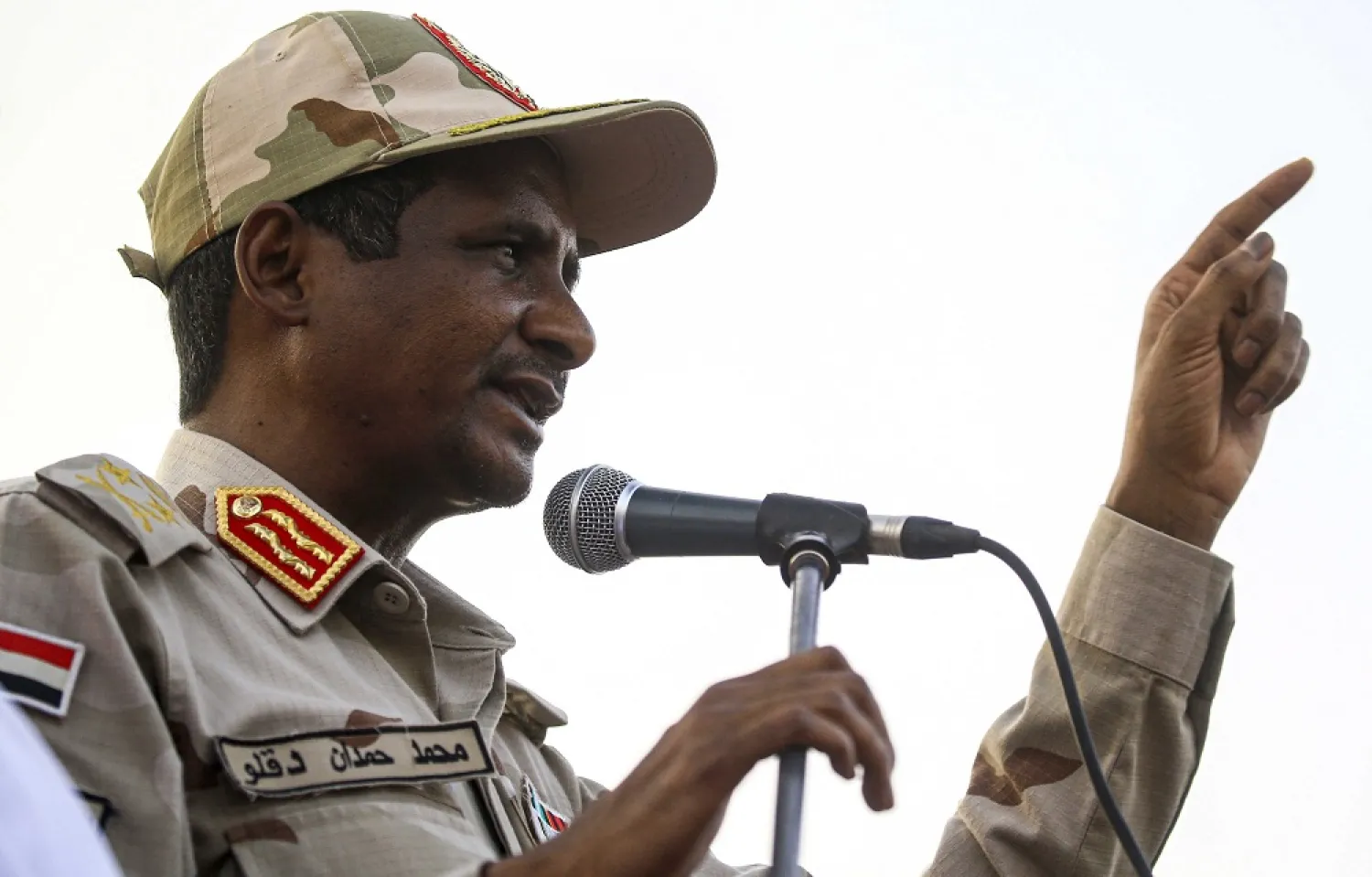Deputy chairman of the Sudanese Sovereignty Council, Lieutenant General Mohamed Hamdan Dagalo (“Hemedti”) accused parties in the transitional authority of conspiring against and demonizing Sudan’s Rapid Support Forces (RSF), which he commands. He also denied deploying forces to Libya.
Observers believe that Hemedti’s statements indicates the existence of a rift within the ruling coalition in Sudan.
This was not the first time Hemedti talked about the systematic targeting of his forces. He formerly accused several parties of seeking to remove his forces’ from the capital, Khartoum, and from the political equation in a plan to depose the incumbent civil transitional government.
In a May 24 interview broadcast on Sudan 24 TV channel, Hemedti revealed that the RSF had confronted a plot led by forces outside the security taskforces charged with crackdown on the protest in front of the General Command of the army in Khartoum on April 11.
He vowed to expose many hidden facts about the forces that partook in breaking the sit-in after the results of ongoing special investigations into the June 3, 2019 events are concluded. Hundreds were killed and many were injured during the unrest.
Hemedti also denied the presence of RSF units in Libya. Some parties had promoted the notion that RSF members had headed to Libya to fight as mercenaries.
Hemedti revealed, however, holding mediations between warring parties in Libya with the aim of ending the conflict, but they were rejected.
Sudanese political analyst Abdullah Rizk points out that the rift is widening within the ruling political coalition. This ushers in a new phase for rearranging the forces forming the transitional authority.
“The current situation is unstable, and Hemedti’s frequent appearances do not hide his fears of a conspiracy against him. Some are trying to blame him for breaking up the sit-in,” he said.
Rizk believes that the massacre that took place against protestors has contributed to spurring disputes among military ranks and reflects the fragility of the alliance between the military and civilians in the transitional authority.









